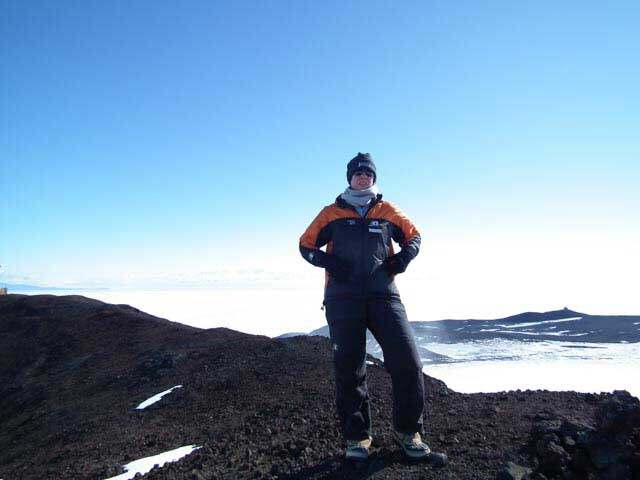Te Whare Wānanga o Waitaha | University of Canterbury (UC) School of Earth and Environment Associate Professor Daniela Liggett says many people mistakenly think the Antarctic escaped the impact of the global pandemic, but the reality is quite different. She is the lead author of a new research paper called How the Covid-19 pandemic signalled the demise of Antarctic exceptionalism.


“At the time, the Antarctic was looked at as an enclave that was spared due to its remoteness and extreme environment, but this wasn’t the case. The pandemic caused significant impacts to the region which we are only just beginning to understand. Considering the Antarctic accounts for 10% of the Earth’s surface and has a significant impact on the global climate, we are concerned that the impacts of the pandemic need to be addressed before it’s too late.”
Covid-19 first reached Antarctica in December 2020, with tourism operations and research fieldwork ceased in the 2020/21 season.
The Scientific Committee on Antarctic Research (SCAR) President at the time, Professor Steven Chown, inspired Associate Professor Liggett to bring together a multidisciplinary and international team under the umbrella of SCAR’s Standing Committee on the Humanities and Social Sciences to explore the different effects the pandemic had on Antarctic communities of practice.
This team considered impacts of the pandemic on researchers and their work, including psychological impacts; media representations of the region; how economic users of the region were affected, including tourism and fishing operations; and what the potential environmental consequences might be. The project was managed by Dr Andrea Herbert and the research was supported by SCAR and UK Research and Innovation Natural Environment Research Council core funding for co-authors Professor Pete Convey and Dr Kevin Hughes from the British Antarctic Survey.
One of the key concerns raised in the paper is the governance of the region.
“The Antarctic and Southern Ocean is governed by Antarctic Treaty Parties, and as a consensus-based system, the parties had already been under pressure for not responding fast enough to challenges posed around climate change issues. The pandemic then caused the balance between the parties to be unhinged, reducing its ability to make decisions on policy issues, which has been further exasperated by the Russia and Ukraine war. If the governance system fails, there will be significant consequences for what people term one of the last wildernesses of the planet,” Associate Professor Liggett says.
The researchers also found that the pandemic caused significant disruptions to scientific progress and placed substantial hardship on Antarctic researchers.
“Research activities were significantly impacted by Covid-19 as suddenly field support was cut and operations were halted, causing delays of at least one or two years – with some considerably longer – and the cancellation of some field projects. This interrupted a lot of the long-term observations that require annual data to be collected to understand the trends relating to areas such as climate change, and impacts on ecosystems and atmospheric phenomena, so we are now missing chunks of data that cannot be replaced,” Associate Professor Liggett says.
“The delays and cancellations have been further aggravated by funding cuts, resulting in the early retirement of experienced staff, the inability to give early-career researchers field training and experience, and the loss of income for many – some of whom chose to leave academia.”
However, there were also some ingenious solutions found. Associate Professor Liggett says that opportunities arose to integrate innovations that were developed during the pandemic within standard Antarctic practices.
“What Covid-19 allowed us to do is reset how research communities operate in the Antarctic space. Due to lockdowns and limited international travel, new approaches to research were explored, such as increased use of remote sensing technologies for data collection and efforts to increase data sharing and collaboration. It is hoped these will continue in the future.”



































